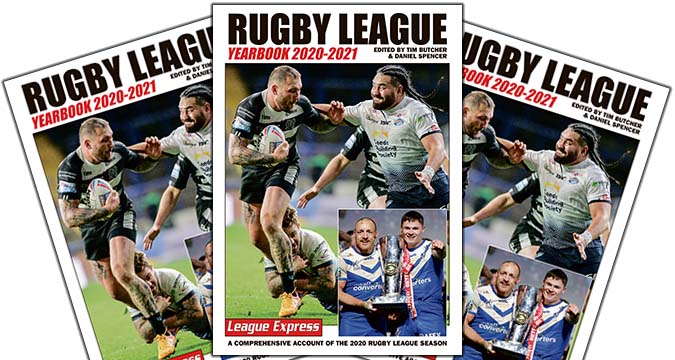 The League Express Rugby League Yearbook 2020-21 is available now from the TotalRL.com Shop for just £17.99 including free delivery within the UK
Also now available as a digital edition from Pocketmags to read on your desktop, smartphone or tablet!
The latest League Express Rugby League Yearbook is the 25th of the annual series, covering t
The League Express Rugby League Yearbook 2020-21 is available now from the TotalRL.com Shop for just £17.99 including free delivery within the UK
Also now available as a digital edition from Pocketmags to read on your desktop, smartphone or tablet!
The latest League Express Rugby League Yearbook is the 25th of the annual series, covering t The League Express Yearbook 2020/21 charts a year never to be forgotten
 The League Express Rugby League Yearbook 2020-21 is available now from the TotalRL.com Shop for just £17.99 including free delivery within the UK
Also now available as a digital edition from Pocketmags to read on your desktop, smartphone or tablet!
The latest League Express Rugby League Yearbook is the 25th of the annual series, covering t
The League Express Rugby League Yearbook 2020-21 is available now from the TotalRL.com Shop for just £17.99 including free delivery within the UK
Also now available as a digital edition from Pocketmags to read on your desktop, smartphone or tablet!
The latest League Express Rugby League Yearbook is the 25th of the annual series, covering t 